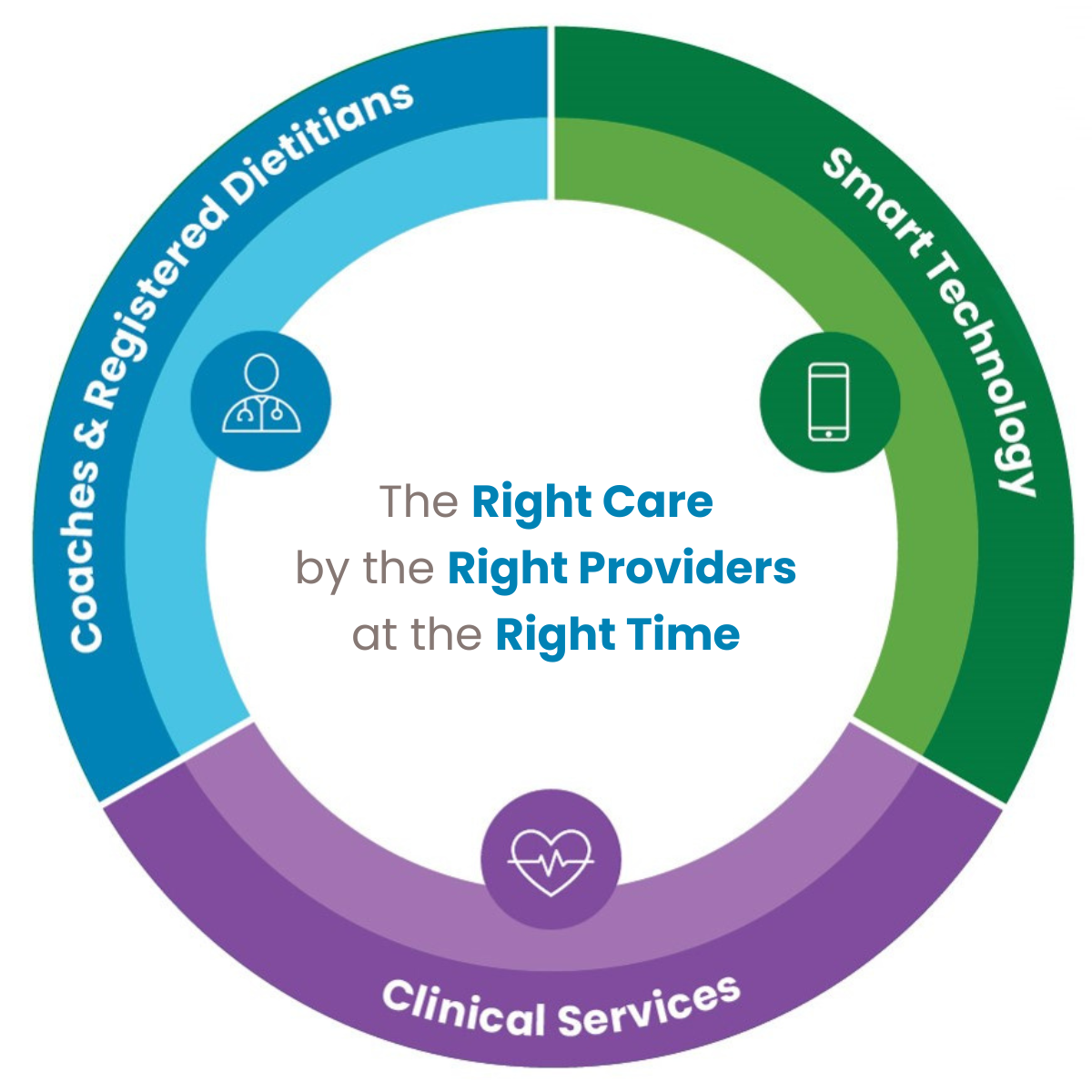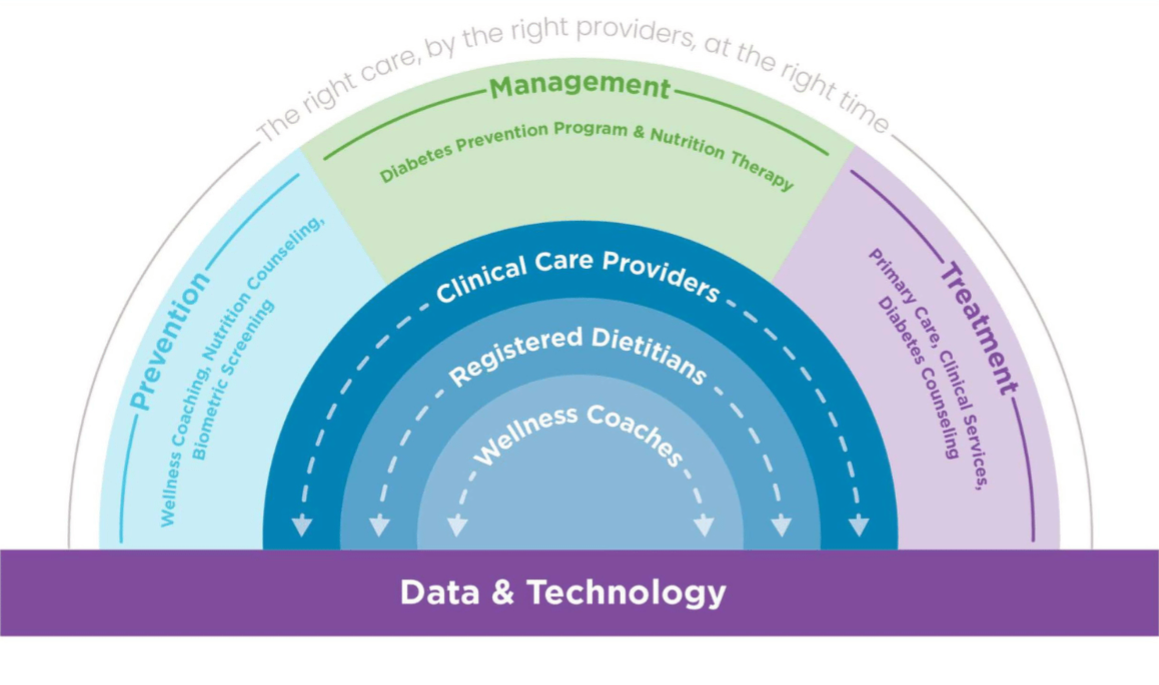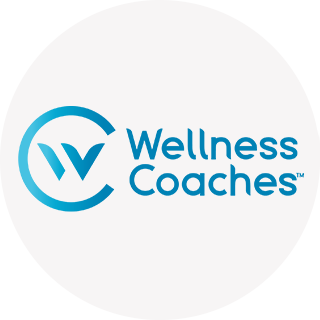During the COVID-19 pandemic, people spent a lot of time isolated and indoors, which helped foster an environment where some people now feel lonelier than ever. The result is a loss of social connectedness—the degree to which people feel the social connections and relationships in their lives to satisfy their wants and needs. When social…
Your Welcoa membership has expired.
The Solution to Employee Wellness: Personalized Approach
What an amazing event Onward: Breakthrough Solutions was a few weeks ago, expertly designed and hosted by WELCOA! The resilience and ingenuity attendees demonstrated over the past couple years was apparent. Their respective employee population approaches or innovative business solutions in response to the VUCA circumstances were on full display! Despite the challenges, we see the commitment to employee wellness with personalized solutions leading the way in driving outcomes.
Population-wide Challenges
We know employers face significant challenges when it comes to employee health. The state of population health in the US is at crisis levels. Although the issue has been growing over time, the pandemic has exacerbated it. The numbers are alarming:
- Heart disease is the leading cause of death in the US.i
- In 2020, 20% of adults in the US experienced a mental illness.ii
- 73.6% of American adults are overweight, 42.4% are obese.iii
- 61% reported undesired weight gain during the pandemic.iv
- In the US in 2020, there were 4 million medically-consulted workplace injuries, and 4113 preventable injury-related workplace fatalities.v
These statistics present significant health and mortality risks associated with high blood pressure, cancer, renal disease, mental health and substance use disorders, as well as many quality-of-life issues. Further, chronic health conditions and unhealthy behaviors, which include high blood pressure, diabetes, smoking, physical inactivity, and obesity, cost US employers over $36.5 billion annuallyvi. A 2020 study by the National Institute of Health (NIH) found that “adults with obesity in the US compared with those with normal weight experienced higher annual medical care costs by $2,505.00 or 100%.vii” The mental health statistics, along with the workplace injury and fatality numbers are similarly concerning. While the causes of these challenges are large and far reaching, the proven solutions remain highly personalized health approaches.
Employer Approaches to Social Determinants of Health through Corporate Social Responsibility
In recent years we have come to acknowledge the role that the environment and other factors beyond personal lifestyle choice and behavior play in individual health. These factors are commonly referred to as social determinants of health (SDOH), which, according to the CDC, are “conditions in the places where people live, learn, work, and play that affect a wide range of health risks and outcomes.viii” SDOH include food insecurity, food access, education, genetics, activity levels, occupation and others. Because work is identified as a social determinant of health, it is becoming increasingly prevalent for employers to incorporate employee wellness programs as part of their offerings.
Corporate Social Responsibility (CSR) is now the norm, and employee population health and wellness take priority. According to Harvard Business Review, “Wellness will become the newest metric that companies use to understand their employees.ix” Through CSR, companies cultivate a culture of good corporate citizenship with respect to the community, the environment, and the economy. The term is evolving; “corporate” implies that the trend is limited to corporations, but the reality is that employers of all sizes and types are undergoing a shift toward this mindset. Increasingly, the term Environmental, Social, and Governance (ESG) is becoming a more common way to describe these trends, but regardless of the term, it is unquestionably a positive development. The Kaiser Family Foundation reports that in 2019, 84% of large employers (200 or more workers) that are providing health benefits offered a workplace wellness program which included services such as weight loss, smoking cessation, and lifestyle coaching.x
Trends in Employee Wellness Programs
The recognition of Social Determinants of Health along with the commitment to Corporate Social Responsibility has led the majority of companies to implement wellness interventions for entire employee populations. Unfortunately, while intentions are good, the efforts are not yielding in moving the needle on employee health. According to Harvard Business Review, “wellness programs, offered by 80% of large US companies, yield unimpressive results.” This leads to frustration for both employee participants as well as those organizing and implementing the program and ultimately lack of return on investment…money, time, energy down the drain while the population health continues to decline.
Proven Solutions
There is hope! While many employee health solutions thus far have not proven fruitful in moving the needle on employee health outcomes, there are evidence-based health solutions that if deployed in an employee population can make meaningful change. Those proven solutions marry together the innovative employee wellness approaches with the healthcare industry who has decades of proven health solutions along with an evidence-based methodology for improving those solutions over time. What we know from the evidence is that the most impactful and cost-effective solutions to chronic disease prevention, management, and treatment is lifestyle modification. Lifestyle modification includes nutrition, physical activity, tobacco cessation, alcohol moderation, and stress management. These each require individual behavior change.
Individual behavior change is most effective when the approach is personalized. How do we reconcile personalized approaches with trying to implement population-based solutions? To do so, we must offer personal healthcare structured in an easy to access and scalable manner deployable to entire employee populations.
Personalized Employee Wellness
The gold standard in healthcare is referred to as the triple aim of healthcare. The triple aim aspires to healthier people and better care with smarter spending. Targeting the triple aim in employee wellness requires stratifying an employee population to offer employees the specific care they each need based on their individual health risk. When implemented strategically, this results in employees receiving the right care based on their current health needs and smarter spend.
The health needs, and as a result the appropriate solutions to address those needs, will vary from one employee to the next. Therefore, blanket solutions that lack the ability to target individual needs often fail. Think about diets in eating. While diets and meal plans abound, we know attempting to strictly adhere to a generic diet often fails. This is commonly due to the solution’s lack of customization to an individual’s nutritional needs, food preferences, cultural food beliefs and memories connected to food, food budget, and preferred food preparation methods.
Our health behaviors are tied to a host of factors that run deep. The most effective solutions are personalized and take the entire person into consideration. Whole Health has become the new gold standard approach to overall health and wellness. Depending on who you ask, there are different metrics and categories that illustrate the concept, but generally it references a holistic, proactive method of managing health that comprises physical, mental, emotional, and social well-being. Whole Health is a proactive, preventive, integrated approach that infuses all aspects of life rather than a reaction to an acute symptom or injury.
Wellness Coaches Approach

Wellness Coaches’ champions personalized solutions deployed across entire employee populations. Our optimized healthcare experience empowers organizations and helps workforces thrive. We deliver on that vision by providing accessible health services, powered by data and human interaction, with exceptional results. For over 20 years, we have been deploying healthcare professionals directly to the worksite to improve peoples’ lives and deliver better health outcomes for organizations. Our results are industry leading outcomes, measurable reductions in individual health risks, meaningful population health improvements, and an enhanced quality of life for participants.
The Wellness Coaches solution is designed with clinical rigor resulting in using only the most evidence-based services. Those proven services are provided by the experts and impactful providers in their respective areas of expertise. Patented technology, robust data and insightful analytics amplifies this strategic approach.
Proven Services
By making evidence-based solutions easy for employees to access, the employee population receives proven services which drive outcomes and ultimately reduce risks followed by costs. Many of the proven solutions are lifestyle modification including nutrition, physical activity, smoking cessation, and alcohol moderation. To be successful, the approaches to each of the respective lifestyle modification pillars must be personalized. While everyone can benefit from improved physical activity for example, the recommended types of physical activity may vary based on individual risk, resources, physical abilities, and more. An employee wellness solution rolled out to an entire population must still allow for personalization. This can be accomplished through 1-on-1 interactions with the experts in each of the respective lifestyle modification pillars. For example, providing employees with access to wellness coaching and nutrition counseling allows them to receive personal support in improving their lifestyle behaviors based on their individual risks and needs.
Wellness Coaches provide lifestyle modification support to help individuals address health risk factors that can impact overall well-being and safety on the job. Together, the Coaches and individuals work to develop and implement a broad-based approach that encourages positive health choices in all aspects of life. When participants effectively engage with these healthcare professionals, they see measurable improvement: 76% of Wellness Coaches’ clients recorded improved body mass index (BMI), a risk factor for obesity-related chronic diseases such as cardiovascular disease and diabetes. Coaching demonstrably improves systolic and diastolic blood pressure, total cholesterol, LDL cholesterol, HDL cholesterol, triglycerides, fasting glucose, body weight, body mass index, waist circumference, and cardiorespiratory fitness. Coached individuals’ prescription and medical claims were 32% lower than their counterparts who did not access coaching services.
Registered Dietitians (RDs) work strategically with individuals to set and achieve health goals by creating sustainable habits and developing eating patterns that can be upheld 365 days a year. Through this process, individuals learn to cultivate and maintain healthy eating to prevent, manage, and/or treat chronic disease and optimize health. RDs are regarded as the most credible experts in the nutrition field, and are qualified to deliver Medical Nutrition Therapy (MNT), a protocol to enhance health through nutrition. Sessions with a Registered Dietitian are included in many benefits plans, which cuts down one key barrier to access. Sustained engagement with a Registered Dietitian has been shown to achieve the following:
- Drop in A1C level of 2.9% for type 2 diabetics.
- Mean average weight loss of 10%.
- Reduction in both systolic and diastolic blood pressure of 5mmHg.
- Reduction in the risk of having lost work days by 64.3% and disability days by 87.2%, compared with those receiving usual medical care.
These statistics showcase just a small snapshot of the full scope of positive results that RD services deliver.
Impactful Providers
To achieve the triple aim, the current landscape of healthcare delivery in the United States is moving increasingly toward interdisciplinary care. This migration toward a team-based approach expands to those that specialize in lifestyle modification allowing all healthcare providers to truly operate at top of scope. Within this model, each team member provides care within their expertise optimizing outcomes, care, and spending.
Everything is interconnected, coordinated and consistent when we deliver comprehensive care across the health continuum. Our strengths-based approach means that all our providers are operating at top of scope and coordinating care across prevention, management, and treatment, all the while keeping the participant at the center of all we do. The impact of our approach is a focus on the services and support and individual needs most based on their current health status and evolving needs.
Our providers and services come together so the participant experiences the benefits of an integrated care team, connected by one platform delivering the highest quality experience and outcomes.
Smart Technology
All employee wellness services must be underpinned by a robust digital platform that is powered and informed by healthcare experts. A best-in-class digital system benefits all stakeholders and ensures that proven services are delivered in a timely, efficient, accessible manner. Participants must be able to source credible, trusted information, and seek support at all stages of their health and wellness journey. In addition, healthcare professionals supported by a next-generation digital platform can work together effectively and efficiently to coordinate care.

Next Steps
To ensure your employee wellness efforts are effective and achieve the triple aim, opt for evidence-based solutions that allow for personalization in scalable model. Increase your chances of success by working with solutions that provide proven meaningful outcomes. At Wellness Coaches, we find the best outcomes come from our unique combination of proven personalized services by an interdisciplinary team of impactful providers amplified through robust smart technology. When deployed effectively, employee wellness programs offer real and meaningful change for employees and organizations.
- iCenters for Disease Control and Prevention. Underlying Cause of Death, 1999–2018. CDC WONDER Online Database. Atlanta, GA: Centers for Disease Control and Prevention; 2018. Accessed March 12, 2020.
- iiMental Health by the Numbers – Nami.org. https://www.nami.org/NAMI/media/NAMI-Media/Infographics/NAMI_2020MH_ByTheNumbers_Adults.pdf.
- iii“FastStats – Overweight Prevalence.” Centers for Disease Control and Prevention, Centers for Disease Control and Prevention, 10 Sept. 2021, https://www.cdc.gov/nchs/fastats/obesity-overweight.htm.
- iv“One Year Later, a New Wave of Pandemic Health Concerns.” American Psychological Association, American Psychological Association, https://www.apa.org/news/press/releases/stress/2021/one-year-pandemic-stress.
- v“Work Safety Introduction.” Injury Facts, 6 Jan. 2022, https://injuryfacts.nsc.org/work/work-overview/work-safety-introduction/.
- vi“Workplace Health Promotion.” Centers for Disease Control and Prevention, Centers for Disease Control and Prevention, 10 Mar. 2020, www.cdc.gov/chronicdisease/resources/publications/factsheets/workplace-health.htm.
- viiCawley, J; et al. “Direct Medical Costs of Obesity in the United States and the Most Populous States.” Journal of Managed Care & Specialty Pharmacy, U.S. National Library of Medicine, pubmed.ncbi.nlm.nih.gov/33470881/.
- viii“About Social Determinants of Health (SDOH).” Centers for Disease Control and Prevention, Centers for Disease Control and Prevention, 10 Mar. 2021, www.cdc.gov/socialdeterminants/about.html.
- ixKropp, Brian, and Emily Rose McKay. “11 Trends That Will Shape Work in 2022 and Beyond.” Harvard Business Review, 13 Jan. 2022, https://hbr.org/2022/01/11-trends-that-will-shape-work-in-2022-and-beyond.
- xKaren Pollitz and Matthew Rae Follow @matthew_t_rae on Twitter Published: Jun 09, 2020. “Trends in Workplace Wellness Programs and Evolving Federal Standards.” KFF, 9 June 2020, www.kff.org/private-insurance/issue-brief/trends-in-workplace-wellness-programs-and-evolving-federal-standards/.

Wellness Coaches
Wellness Coaches is an industry leading, nationwide provider of health and wellness services. We help people live their best lives with personalized solutions that reduce health and safety risks for organizations. We are committed to helping individuals thrive in all aspects of well-being.
Wellness Coaches was a 2022 WELCOA Summit Sponsor and are a proud partner of the WELCOA Premier Provider Network. To learn more visit their Vendor Profile.




